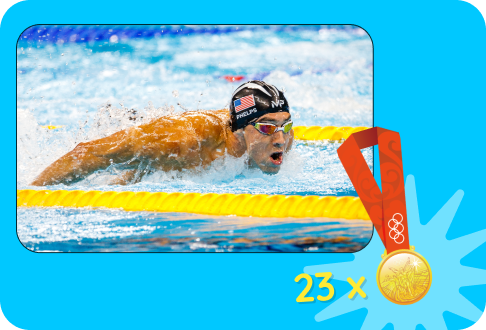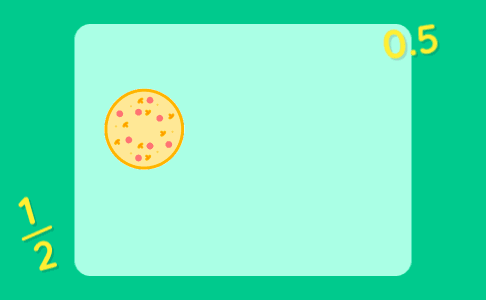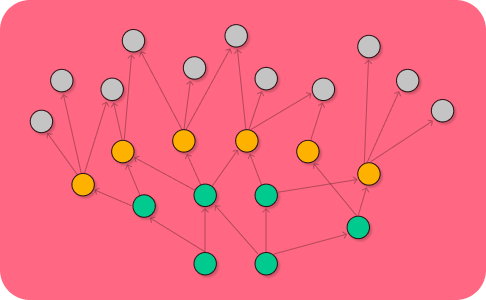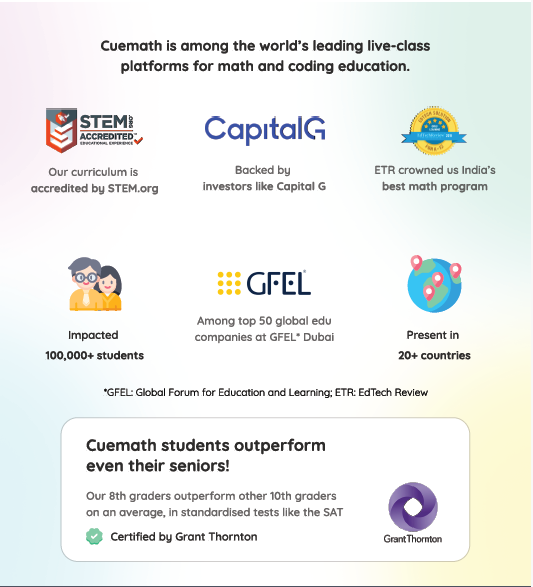Can completing a course win you a gold at the Olympics?
Michael Phelps is the greatest swimmer and perhaps the greatest athletes of all time. By the time he retired in 2016, he had won more Olympic medals than 161 countries!

Could Phelps have done this just by merely completing a fixed-duration swimming course? Definitely not. Phelps achieved what he did by mastering his craft, not by completing some set coursework.
This mastery-not-completion angle is easy to see in the case of Phelps and other top achievers. But when it comes to educating our own children, the situation is dramatically different.
In math, for example, the focus in each grade is to complete the coursework for that grade. The teacher is often under pressure to just complete this chapter, and move on to the next one.
Without fully understanding fractions, the child has to move on to decimals, and never makes the connection that ½ and 0.5 are just two different ways of writing the same quantity:

Without fully understanding the similarity of triangles, the child has to learn trigonometry, and never realises that sin 30° = ½ simply says that in any right triangle with the base angle as 30°, the perpendicular to hypotenuse ratio must always be 1:2, no matter what the actual size of the triangle is:

Across the world, children are made to focus on completion, not mastery. But in the real world, what wins is mastery, not completion.
So what’s the solution?
Well, at least when it comes to math and coding, we have an answer at Cuemath. We think of the universe of concepts as a lattice, in which every concept is linked to a higher-order concept, and you can’t move to a new concept unless you have mastered all the previous linked concepts:

So, for example, a Cuemath student will move from fractions to decimals only when she has fully mastered the chapter on fractions, and not just merely completed it.
And how do we ensure mastery? Well, we follow a rigorous mastery loop based on cutting edge learning principles. This mastery loop has four steps: (1) learn the concept visually, with the teacher (2) practice the concept immediately (3) take a test to assess, after a few days, (4) take another test to revise, after a few days again:

I believe a focus on mastery instead of completion is the only way to ultimately succeed in life-skills like math and coding, even if it takes more time. Mastery is powerful. Mastery, not completion, is what will take your child to the top of the pyramid. Just like Phelps.

If you liked this, you might be interested in exploring Cuemath’s live Online Classes, where expert tutors teach math and coding by focusing on mastery instead of completion.

